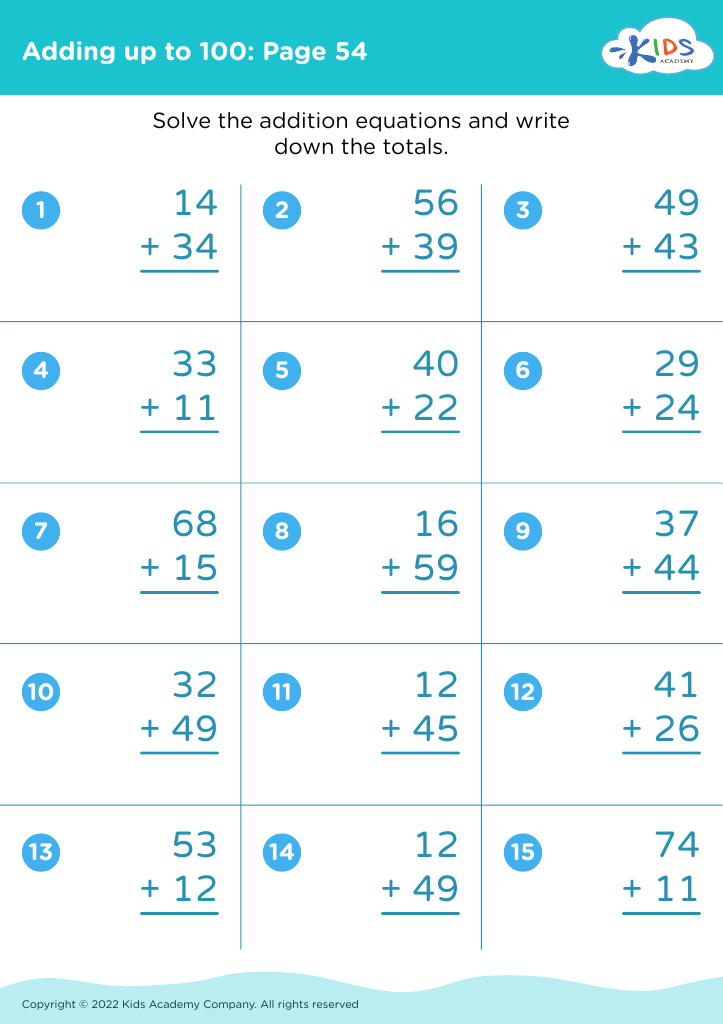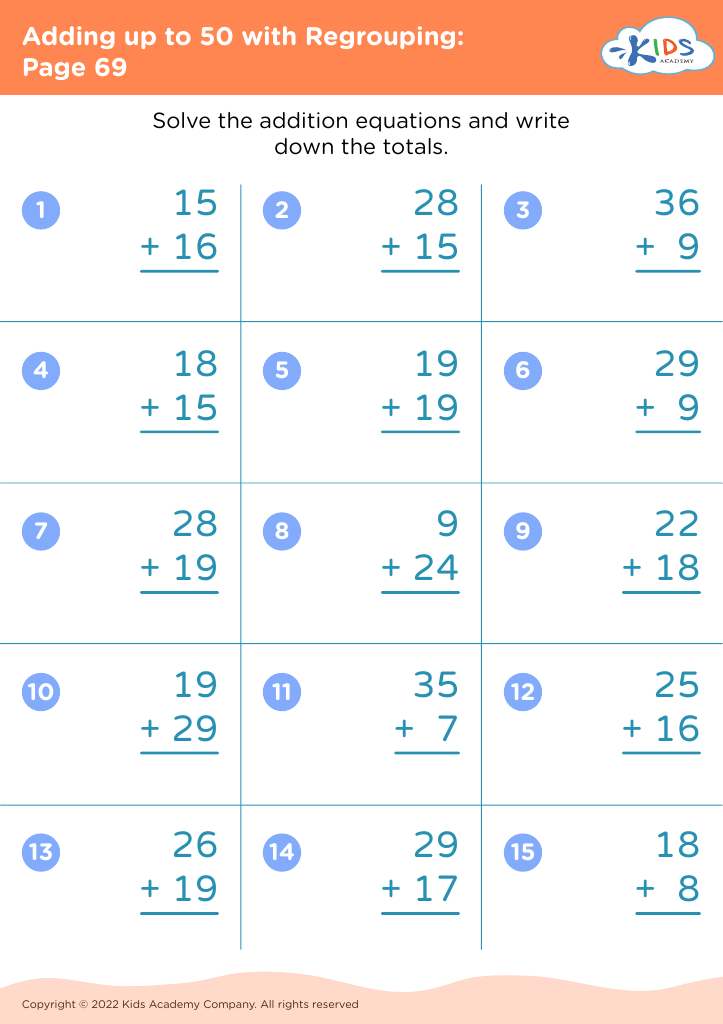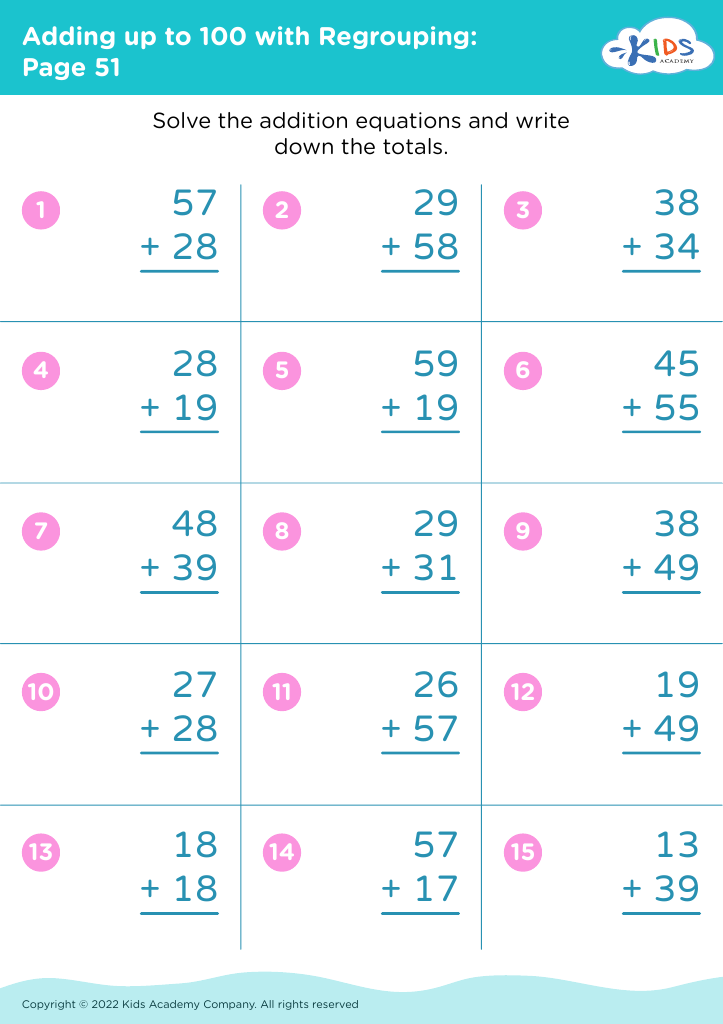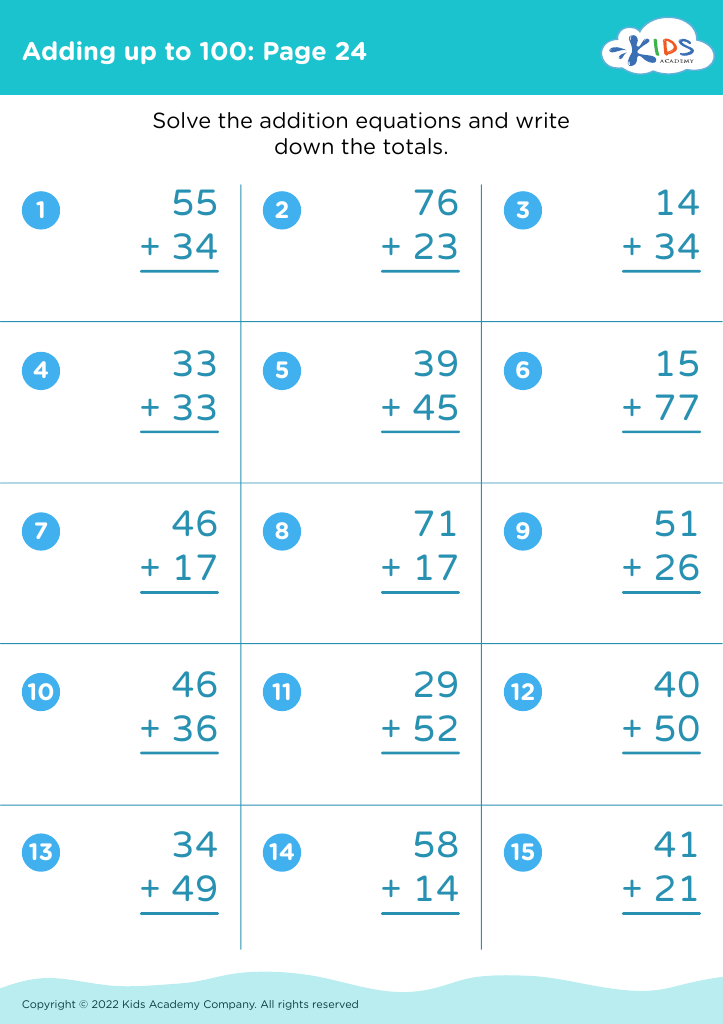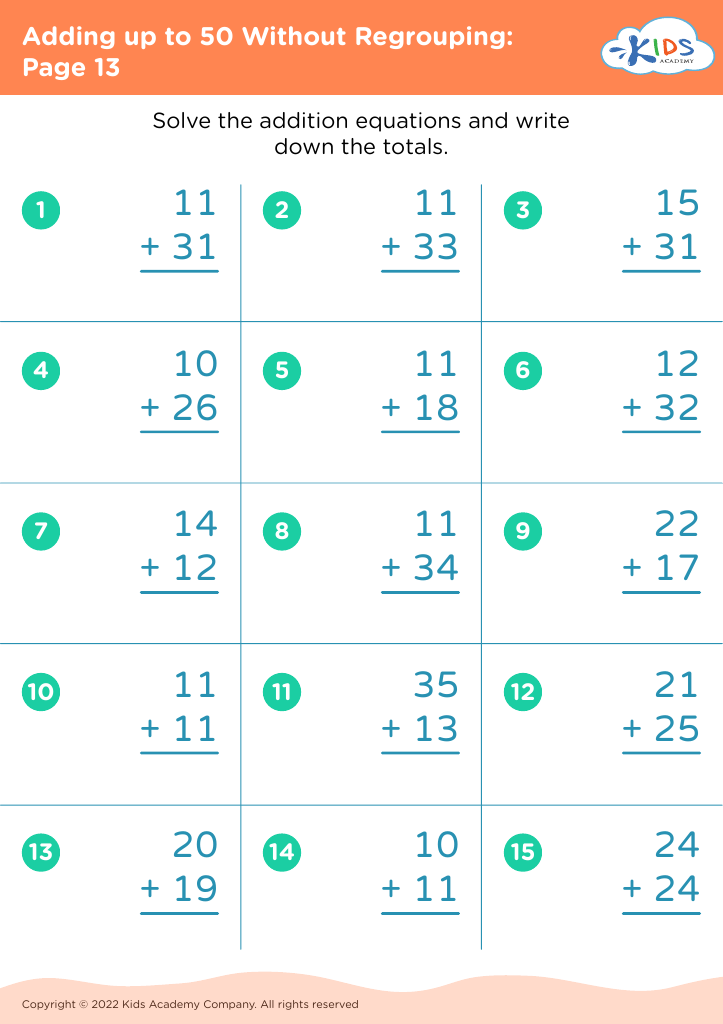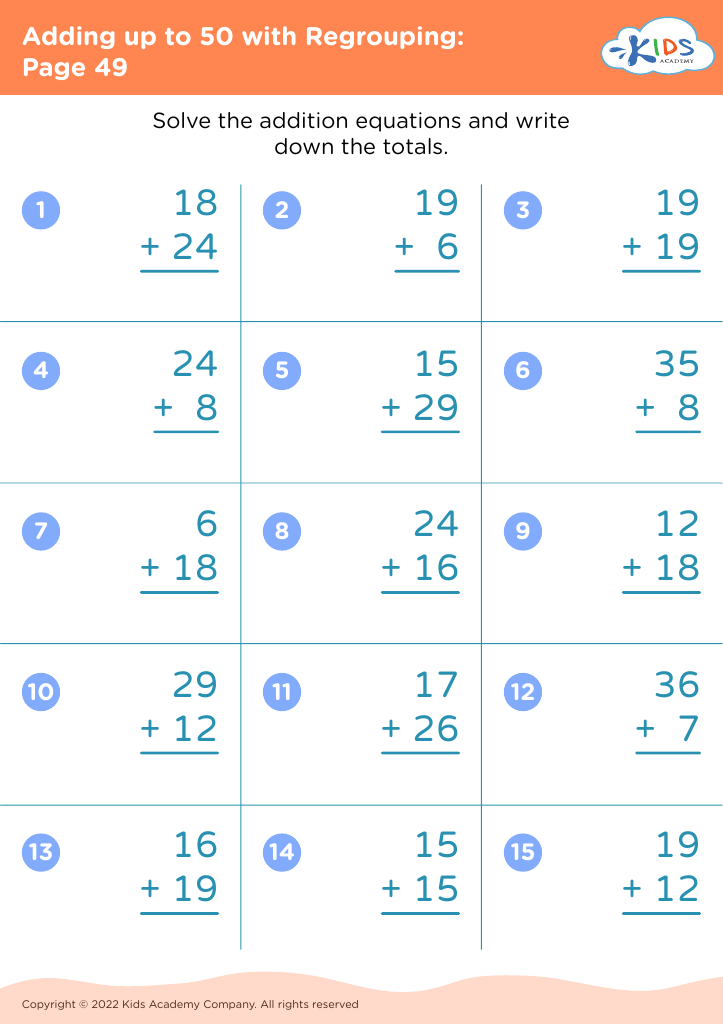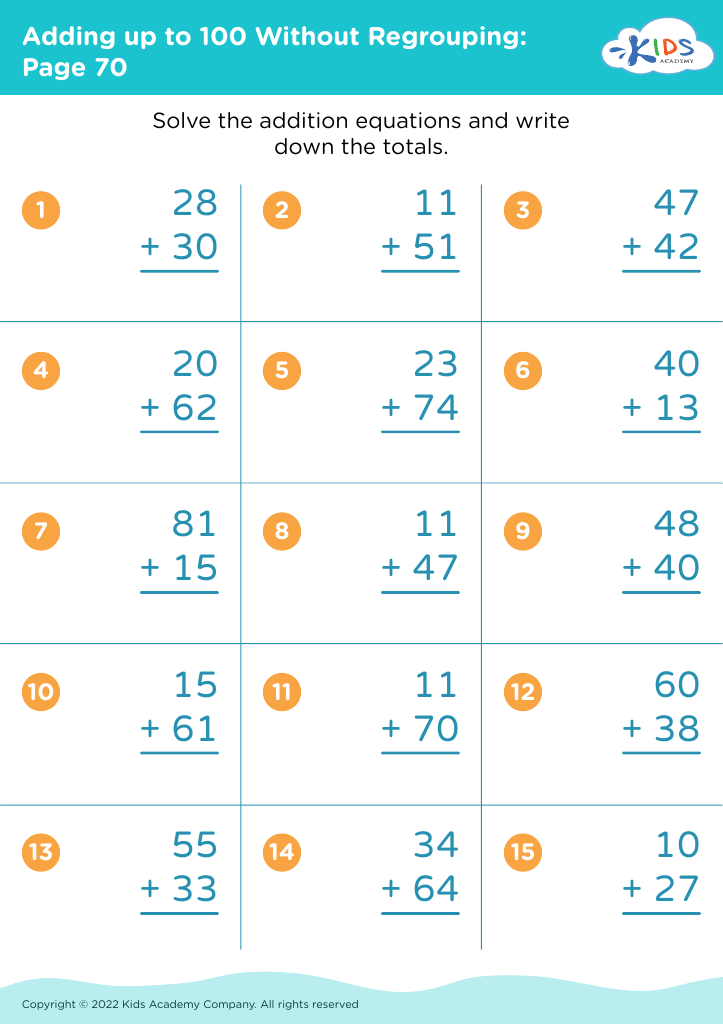Enhance counting skills Addition Worksheets for Ages 4-7
13 filtered results
-
From - To
Discover our "Enhance Counting Skills Addition Worksheets" designed specifically for children aged 4-7. These engaging and interactive worksheets provide a fun way for young learners to develop their counting and addition skills. Through colorful illustrations and varied activities, children will practice basic addition concepts while reinforcing their number recognition and counting abilities. Each worksheet is tailored to accommodate different learning levels, ensuring every child can learn at their own pace. Perfect for both classroom and home use, our addition worksheets help build a strong foundation in math, setting your child up for future success. Start their math journey today with these playful resources!
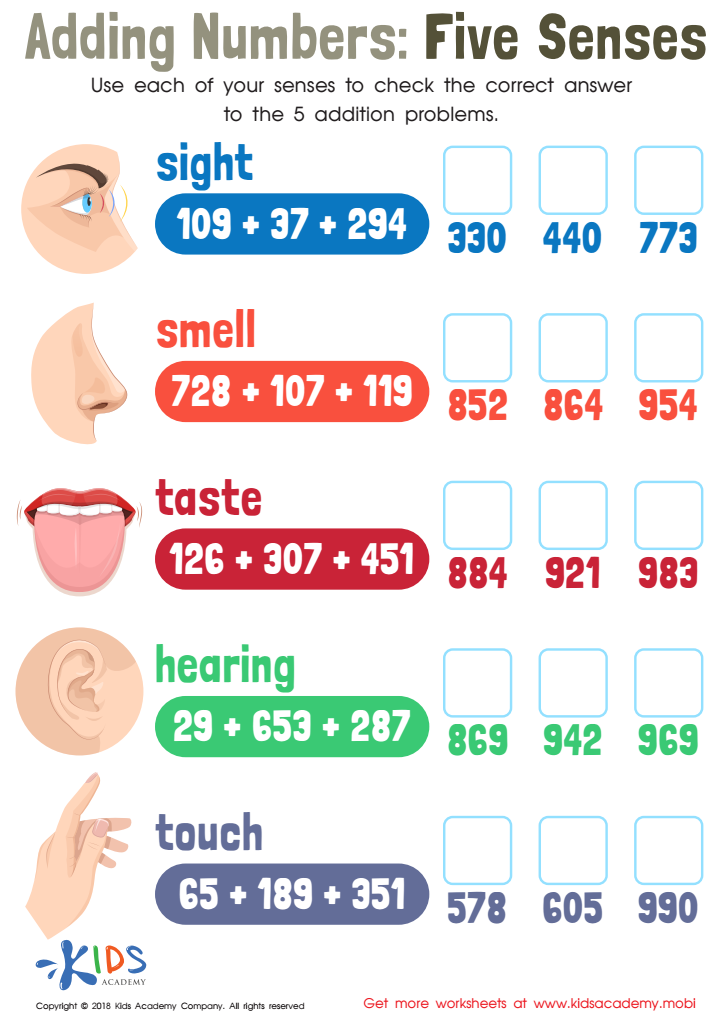

Adding Numbers: Five Senses Worksheet
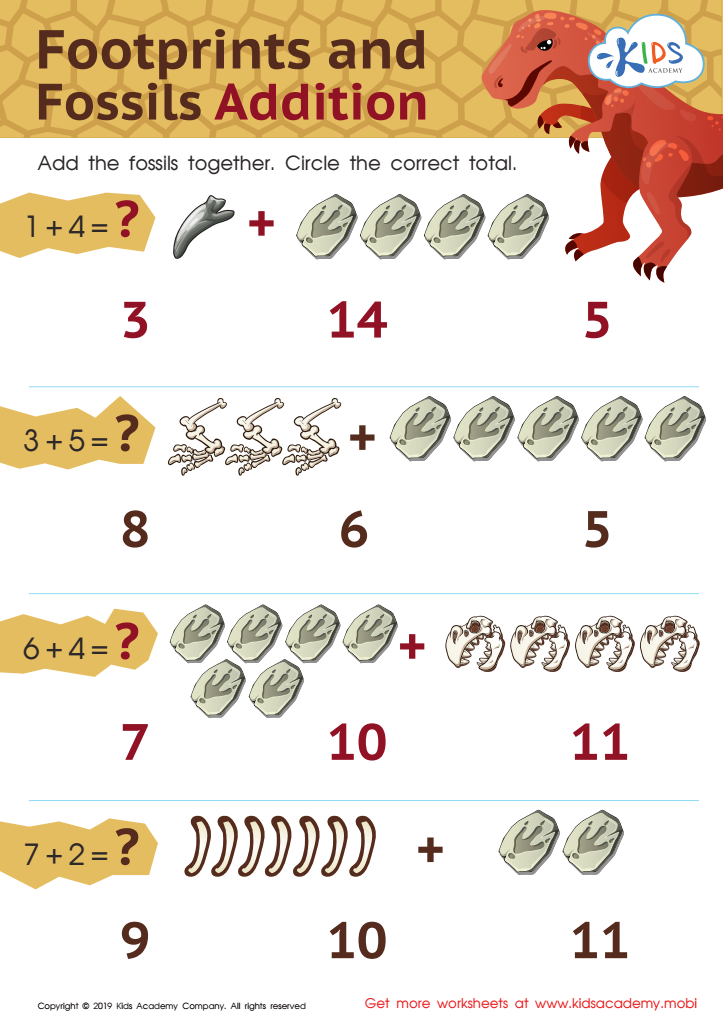

Footprints and Fossils Addition Worksheet
Enhancing counting skills and addition for children ages 4-7 is crucial for several reasons. During this formative stage, children develop foundational math skills that are essential for future learning. Mastery of counting sets the stage for understanding numbers and basic arithmetic, fostering children's confidence in their abilities.
Early counting and addition skills have significant implications for everyday life. They help children grasp concepts such as quantity, comparison, and simple operations essential for problem-solving. Engaging children in these activities nourishes critical thinking, cognitive development, and promotes good organizational habits.
Additionally, building a strong math foundation aids in the development of reasoning skills, which are vital not just in mathematics but across all academic disciplines. Good counting skills improve a child's ability to follow instructions in routine activities, enhancing their independence and participation in group settings.
Furthermore, active participation from parents and teachers in reinforcing these skills through games, hands-on activities, and real-life examples creates a positive learning environment. This engagement encourages a love for math, turning what may seem like a daunting subject into a fun and interactive experience, ultimately fostering a lifelong interest in learning. Investing time in enhancing counting and addition skills today bears fruit for a child's future academic and personal success.


 Assign to My Students
Assign to My Students
